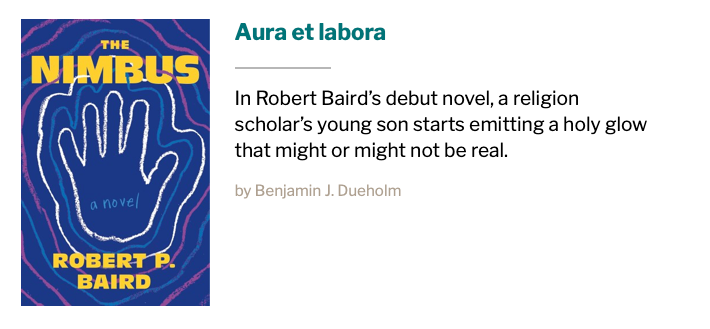The Nimbus in The Christian Century

Though The Nimbus is anything but orthodox, I guess I shouldn't be surprised that the book has gotten some of its most thoughtful and comprehending responses from critics writing for religiously-affiliated publications. After America's rave comes this wonderful (and wonderfully titled) review from Benjamin J. Dueholm in The Christian Century.
I especially appreciated this part of the review, which serves as a useful corrective to the crude and flattening conception of satire that some other critics have appealed to in their evaluations of the book:
Critics have, it seems to me, largely mischaracterized The Nimbus as a satire of its academic setting and the intellectualism of its characters. It has elements of satire—a campus novel can scarcely avoid it, and to satirize a place like the University of Chicago Divinity School, all one needs is verbatim transcripts of actual speech—but it is not primarily hostile to its characters. Their periodic unseriousness does not give the lie to the seriousness that drives them. People really do look up at carved angels and get lost in a reverie about human suffering while they’re waiting to ambush a professor. The oft-maligned “life of the mind” is real; that it can be frustrated or buried by personal vanity, selfish supervisors, bigoted professors, poor job prospects, and lack of money is the stuff of tragedy rather than savage comedy. Adrian’s pitch-perfect myopia and narcissism grate on everyone. But his love of Gilgamesh—and of his children—is real.
What we do with this love, and with the “wild facts” William James identifies as existing outside the categories of the critical mind, is, I think, the real subject of The Nimbus.
Read the whole thing here:

